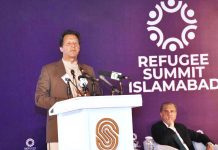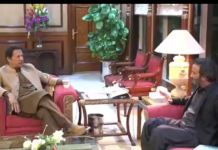ISTANBUL: Adviser to Prime Minster on Foreign Affairs Sartaj Aziz Tuesday stressed upon Muslim Ummah to forge unity, which has remained an envious Muslim trait in the past.
Alluding to the enormous modern day challenges, he said unity among Muslim was needed more than any other time in the 1,400 years long history.
Addressing a meeting of the Council of Foreign Ministers of the Organisation of Islamic Cooperation (OIC), he regretted the Muslims and their territories remained under foreign occupation.
“A number of brotherly countries are facing unprecedented turmoil. Our people are suffering unbearable misery and hardship as refugees in search of shelter. And then, our religion, our values, our outlook, our Holy Prophet (PBUH), our symbols, indeed all that has association with our noble religion Islam is under attack,” he noted.
Sartaj underscored resolution of issues among the Muslim countries through mutual consultations, saying it was not only their religious duty but also a political imperative for ensuring peace and security of their people.
“Any member state amongst us that could assist in bridging the differences between brotherly countries must step forward and help resolving them,” he asserted. He said Prime Minister Nawaz Sharif acted in the same spirit when he visited the Kingdom of Saudi Arabia and Islamic Republic of Iran in January. He said that both the countries were deeply concerned at the sharp rise in hate speech, discriminatory acts and social hostility against Muslims, especially the Muslim minorities.
“We are also witnessing increase in the instances of physical and psychological violence against Muslims and their businesses and places of worship. Muslim minorities are being alienated and marginalised. Many of them live in fear,” he lamented.
The adviser observed that Western media’s ignorant portrayals of Muslims provided fuel to the campaign of hate and bigotry. “At a time when there was a need to urge all communities to develop tolerance and respect for each other, the unfortunate rise of political opportunism was witnessed by spreading fear and xenophobia,” he maintained.
He warned that if left unchecked, such instances and political shortsightedness would grow rapidly in the years to come, adding “it is our collective responsibility to reverse these trends”.
Sartaj said that they attached importance to the freedom of expression and emphasised that however, they refused to accept that it allowed insults against Islam and hate speech and incitement to violence against Muslims. He suggested the OIC could take a role of a lead partner in interfaith dialogue. “The secretariat might examine the possibility of holding a high-level international event to highlight the dangers that growing intolerance and hostility might pose to the international peace and security,” he added.
He said that the educational systems, media, religious scholars and the civil society in the Muslim countries as a whole must promote tolerance and respect for differing views in their own societies. He said terrorism and violent extremism posed serious threat to international peace and security as it had inflicted immeasurable human and economic losses. “Pakistan has always supported that a comprehensive counter-terrorism strategy is needed to tackle this global problem,” he added.
He highlighted that the complexity of challenge also demanded enhanced and shared understanding and deeper dialogue between countries, cultures and civilisations. Terrorism could not and should not be associated with any religion, nationality, civilisation or ethnic group, he remarked.
He was of the view that the OIC members should always give due consideration to specific local context and religious and cultural sensitivities while crafting any international response to counter violent extremism. “The OIC must maintain its consensus on the issues related to terrorism,” he said.
The adviser also commended the international community for adoption of consensus resolution in the Human Rights Council against intolerance and discrimination and stressed upon implementation of the resolution’s action plan agreed in the Human Rights Commission.












